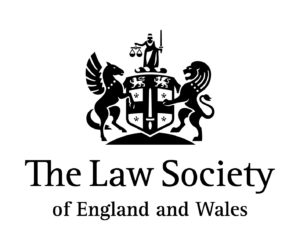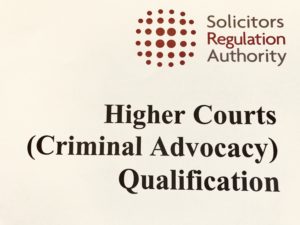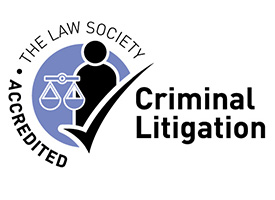Monthly Archives: September 2019
There have been widespread reports in the press about spare courtroom capacity, with judicial sitting days at an all-time low. These reports correspond to our own experience. For example, at Nottingham Crown Court it is expected that only 6 of the 9 court rooms will be open, and at Derby Crown Court only 3 of the 4.
When court delay is combined with significant delays in investigating and charging defendants to court, this can mean a very long period between the commission of any crime and sentencing.
As advocates, we are increasingly concerned with the effect of delay on the people we represent and can deploy several legal principles in an attempt to mitigate the sentence passed.
On occasion, this can work in our client’s favour. It can either reduce the length of the overall sentence, allowing a custodial sentence to be suspended where it would not otherwise be or by justifying a non-custodial sentence in circumstances where custody would be the expected sentence.
We have recently represented clients facing serious charges who have received either a suspended sentence or a substantially reduced sentence specifically as a result of these delays.
What does the law say about delay and sentence?
In Prenga [2017] EWCA Crim 2149 the court held:
“We start by considering the nature and extent of the discretion to adjust otherwise lawful sentences where required to achieve justice. It is, in this regard, well established that a sentencing judge may reduce the sentence that would otherwise be imposed to achieve justice and to reflect exceptional factors. The paradigm illustration flows out of the requirement in ECHR article 6 that proceedings must be concluded within a reasonable time. Where proceedings are unduly delayed that delay may count as a mitigating factor in appropriate circumstances. The threshold is necessarily a high one.”
In Dyer v Watson; K v HM Advocate[2004] 1 A.C. 379; [2002] 3 W.L.R. 1488 Lord Bingham of Cornhill observed that in any case in which it was contended that article 6 was violated by virtue of delay the first step was to consider the period of time which had, in fact, elapsed.
Unless that period gave grounds for real concern it was almost certainly unnecessary to go further “… since the convention is directed not to departures from the ideal but to infringements of basic human rights”.
The threshold for proving a breach of the reasonable time requirement was a high one “not easily crossed”
In Mills (Kenneth Anthony) v HM Advocate (No.2) [2004] 1 A.C. 441 Lord Hope (at [54]) recognised that delay could in an appropriate case justify an adjustment to sentence. One possible rationale for this is the anxiety experienced by a defendant, resulting from the abnormal prolongation of proceedings.
Another possible explanation might be that a defendant’s life has changed during the period of delay such that the person who stands to be sentenced is, in terms of character, not the person who committed the offence.
In Attorney Generals Reference No.79 of 2009 [2010] EWCA Crim 338 it was held (per Hughes LJ VP at [19]) that delay:
“… is of relevance if not to a formal assessment of Article 6 then undoubtedly to the broader question of what a just sentence is when eventually and belatedly a conviction occurs.”
The judge, nonetheless, emphasised that applications for reductions in sentence would be “unusual”. The authorities relating to delay and article 6 demonstrate that unnecessary delay can amount to mitigation resulting in reduction of sentence but, also, that questions of delay are instances of “… the broader question of what a just sentence is”. It follows delay, whilst perhaps being a paradigm example, is not exhaustive of the categories of case in which a sentence might be mitigated in order to ensure overall justice.
In R. v Kerrigan (David Joseph) [2014] EWCA Crim 2348, the Court of Appeal was required to consider broad questions of justice in the context of custodial sentences ordered to be run consecutively to existing sentences.
In para [40] of the judgment the court set out seven principles which might apply where a court was imposing sentences for different offences and where they might apply concurrently or consecutively leading to potentially arbitrary results.
For present purposes the seventh principle is relevant and was formulated in the following way:
“a judge retains the discretion to do justice on the particular facts of a case, for example in the case of excessive delay, and may therefore reduce an otherwise appropriate sentence accordingly”.
Instruct an expert criminal solicitor to help
Another aspects of the justice system that can cause delay will be the current system where a suspect is released under investigation. You can read more about that here.
We will provide you with specialist advice and representation at every stage of a criminal investigation or prosecution. In all cases we will ensure that the impact of any delay on your case is fully explored in order that this can be reflected during sentencing.
We have offices across the East Midlands and will happily travel across the country to provide representation for all criminal offences.
You can find your nearest office here.

Monthly Archives: September 2019
As the government prepares to bring us out of the European Union on 31st October 2019, details have begun to emerge as to the legal and regulatory position if we leave without a deal.
Given the importance of complying to the letter with firearms laws both here and abroad, those affected must take steps to keep up to date, and this may involve quite close monitoring over the next few weeks. The same is true in relation to other areas of regulatory and criminal law compliance.
What is the current situation?
A UK resident who wants to travel to the EU with their shotgun or a firearm can apply for a European Firearms Pass. This is a licence, or passport, that allows travel between member states, you must also have a licence from the UK to hold the firearm. Depending on the country you are travelling to, there may be other documents required. All weapons have to be declared to customs and also to the travel company you are using for transport.
Will the European Firearms Pass change?
If the UK leaves the EU without a deal, you will no longer be able to apply for a European Firearms Pass.
What will happen instead?
You will need to check the firearms licensing requirements of the country, before travelling.
This will also apply if you are in an EU country with the firearm with a European Firearms Pass at the time the UK leaves the EU.

What about visitors to the UK?
If you are sponsoring a visitor from the EU, who wants to bring a firearm to the UK, you need to apply to the local UK police force for a visitor’s permit. A permit that is issued before the UK leaves the EU remains valid until it has expired.
Once the UK leaves the EU, the European Firearms Pass will no longer be recognised for EU visitors to the UK. Sponsors of visitors will not need to show a valid Pass.
What should I do?
It is not yet known whether the UK will leave the EU without a deal in October. If you intend to travel with your firearm, it is advisable to check the licensing requirements of the country that you are visiting as countries have varying lead times for applying for licences. Without a proper licence, you may not be allowed to travel with your firearm.
Contact a firearms law specialist
If you are concerned with any aspect of regulatory criminal law and Brexit as it relates to firearms then get in touch for advice on the latest position.
Contact regulatory and firearms law specialist Andrew Broome at our Ilkeston office on 0115 9441233 or by email here.

Monthly Archives: September 2019
Many different terms are used to describe legal professionals:
- lawyers
- solicitors
- legal advisers
- attorneys (an Americanism), or
- a ‘brief’
There are countless others in common usage.
Unfortunately, these different terms can allow for some confusion. When viewing many legal websites a potential client could be forgiven for thinking that they are dealing with a qualified legal professional. The reality, however, might be that nothing could be further from the truth.
The distinction between a ‘real’ solicitor and anyone else is necessary.
As solicitors, we are highly qualified legal professionals. We are regulated by the Solicitors Regulation Authority (‘SRA’) and admitted, and accredited, by the Law Society.
Crucially, we are obliged to have insurance in place. This means that if anything does go wrong, our clients have full protection. There is also adherence to the highest ethical standards.
When dealing with other lawyers employed and supervised by solicitors these same protections apply.
Ironically, it is not always the case that unregulated people charge less by way of fees. As a result, clients can find that they not only receive an inferior service but it will often come at a higher price.
The title of “solicitor” is protected under section 21 of the Solicitors Act 1974:
“Any unqualified person who wilfully pretends to be, or takes or uses any name, title, addition or description implying that he is, qualified or recognised by law as qualified to act as a solicitor shall be guilty of an offence and liable on summary conviction to a fine not exceeding the fourth level on the standard scale.”
Section 20 of the same Act states:
“No unqualified person is to act as a solicitor.”
An offence under section 20 carries up to 2 years imprisonment, and custodial sentences are the norm, underlying the seriousness of the matter.
Some areas of legal advice are ‘reserved activities’. This means that even if an ‘adviser’ is not pretending to be a solicitor, they are prohibited from acting in those matters.
The simple way around this confusion is always to check that you are dealing with a real solicitor.
You can check whether you are dealing with a real firm by using the SRA website. You can also ensure that any site visited is the actual web address for the firm concerned. The postal address, email and telephone numbers can also be checked. The copying of real websites is another problem at the moment.
Follow this link to check whether you are dealing with a real solicitor.
How we can help
Instruct a real solicitor from VHS Fletchers if you require help in the following areas of law:
- police station advice
- Magistrates’ and Crown Court representation;
- appeals
- protest law
- motoring offences
- confiscation proceedings
- prison law
- regulatory and professional defence
- business defence
- environmental offences
- firearms law
- education law
You can find your nearest office here or use the contact form below.






